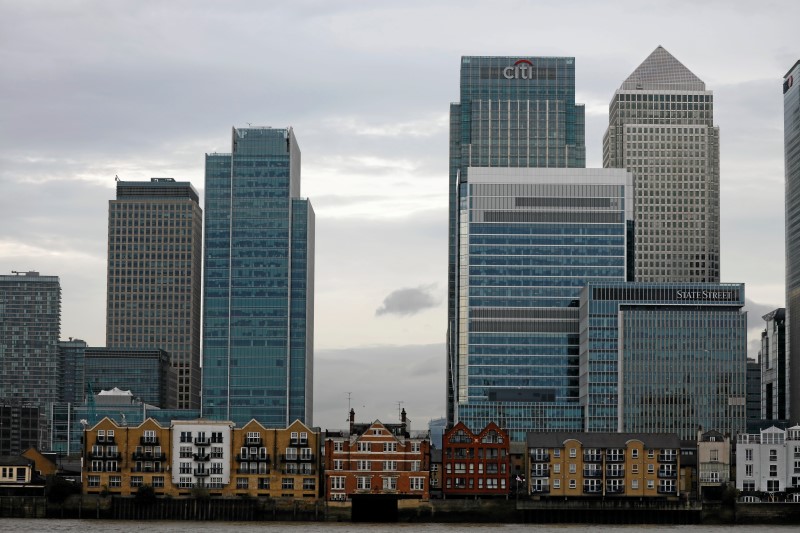By Simon Jessop
LONDON (Reuters) - A vote to leave the European Union in the UK referendum is likely to result in reducing the size of the country's financial services industry, the world's biggest fund manager, BlackRock (N:BLK), said on Tuesday.
The country currently has a surplus in financial, insurance and pension services of 18.5 billion pounds, but post-exit regulatory challenges could see that eroded, said BlackRock, which manages $4.6 trillion (£3.3 trillion) in assets.
Much of the surplus with the EU is based on participants' access to the single market in financial services through a 'passport', access to which could be curtailed, it said in a wide-ranging report.
Among the regulatory hurdles would be what to do with 40 years' worth of EU regulations that had not been formally enshrined in UK law, and which the government would need to replicate.
And even if future laws were replicated, it did not mean access to the single market would be given to UK-based firms, BlackRock added, citing the potential for access to be blocked regardless - especially if the EU sought to penalise Britain to prevent other countries following suit.
"One way to do this would be to refuse to issue the industry a Markets in Financial Instruments Directive (MiFID) passport, in our view," BlackRock said, which was "crucial" for those looking to sell or advise on investment in funds within the EU.
Under that scenario, EU investors accessing global markets through Britain would have to take their business elsewhere, it said, citing Dublin, Paris and Frankfurt as European beneficiaries, as well as centres in the United States and Asia.
However, if Britain was to remain in the Mifid regulatory framework, BlackRock said, 'Brexit' would be "business as usual" for many as the UK would mirror any EU legislation, albeit without having any say in the rule-making process.
For funds based in the European Economic Area but managed from the UK, the UK would likely be considered an equivalent jurisdiction for day-to-day portfolio management, similar to the United States, it said.
Further out, an exit would also probably result in the EU's Capital Markets Union project taking on traits that go against the interests of Britain.
LITTLE REWARD
BlackRock said among the main risks would be that of the EU making it harder for countries outside the region to access such a single market and sought to move market infrastructure, particularly that for euro-denominated business, within the trading bloc.
"Our bottom line is that a Brexit offers a lot of risk with little obvious reward," BlackRock Vice Chairman Philipp Hildebrand said in the report.
"We see an EU exit leading to lower UK growth and investment, and potentially higher unemployment and inflation. Any offsetting benefits look more amorphous and less certain, in our view."
BlackRock said it did not expect an exodus of capital in the event of Britain leaving, but added that since the appeal of unimpeded access to the EU's single market would no longer be there, future investment flows were likely to suffer.
It said a Brexit could pressure the UK's budget and current account deficits, hurting the currency and potentially triggering credit ratings downgrades.

The EU accounts for about half of UK trade and owns about half its foreign direct investment stock. Access to the single market would probably get harder if the UK leaves the EU and the financial industry would be especially hard hit, said BlackRock.